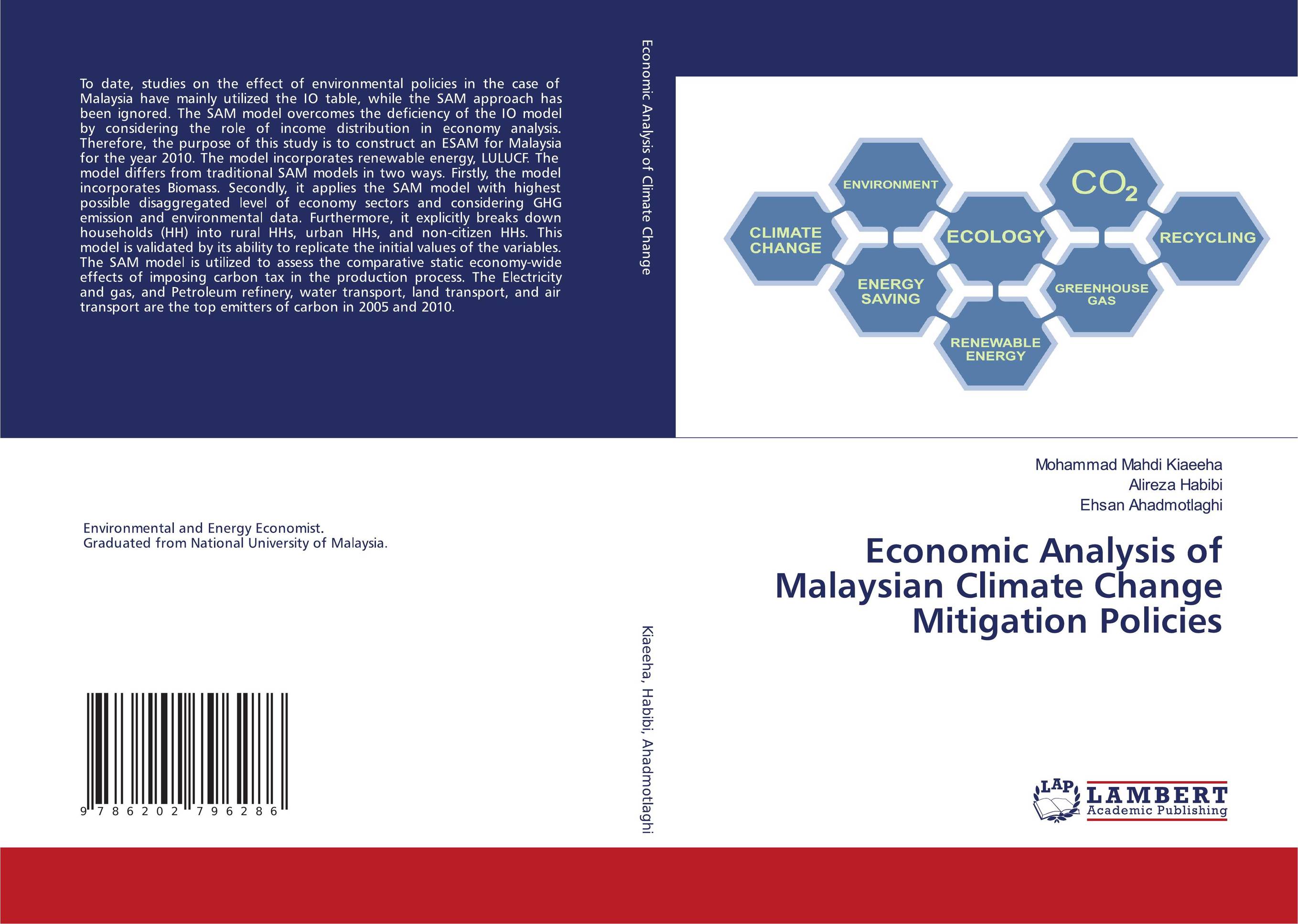| Поиск по каталогу |
|
(строгое соответствие)
|
- Профессиональная
- Научно-популярная
- Художественная
- Публицистика
- Детская
- Искусство
- Хобби, семья, дом
- Спорт
- Путеводители
- Блокноты, тетради, открытки
Economic Analysis of Malaysian Climate Change Mitigation Policies.

В наличии
| Местонахождение: Алматы | Состояние экземпляра: новый |

Бумажная
версия
версия
Автор: Mohammad Mahdi Kiaeeha,Alireza Habibi and Ehsan Ahadmotlaghi
ISBN: 9786202796286
Год издания: 2020
Формат книги: 60×90/16 (145×215 мм)
Количество страниц: 216
Издательство: LAP LAMBERT Academic Publishing
Цена: 50074 тг
Положить в корзину
| Способы доставки в город Алматы * комплектация (срок до отгрузки) не более 2 рабочих дней |
| Самовывоз из города Алматы (пункты самовывоза партнёра CDEK) |
| Курьерская доставка CDEK из города Москва |
| Доставка Почтой России из города Москва |
Аннотация: To date, studies on the effect of environmental policies in the case of Malaysia have mainly utilized the IO table, while the SAM approach has been ignored. The SAM model overcomes the deficiency of the IO model by considering the role of income distribution in economy analysis. Therefore, the purpose of this study is to construct an ESAM for Malaysia for the year 2010. The model incorporates renewable energy, LULUCF. The model differs from traditional SAM models in two ways. Firstly, the model incorporates Biomass. Secondly, it applies the SAM model with highest possible disaggregated level of economy sectors and considering GHG emission and environmental data. Furthermore, it explicitly breaks down households (HH) into rural HHs, urban HHs, and non-citizen HHs. This model is validated by its ability to replicate the initial values of the variables. The SAM model is utilized to assess the comparative static economy-wide effects of imposing carbon tax in the production process. The Electricity and gas, and Petroleum refinery, water transport, land transport, and air transport are the top emitters of carbon in 2005 and 2010.
Ключевые слова: Environmentally extended social accounting matrix, pollution trade-off multiplier, Carbon Tax, Renewable energy, income distribution, Malaysia, social accounting matrix



